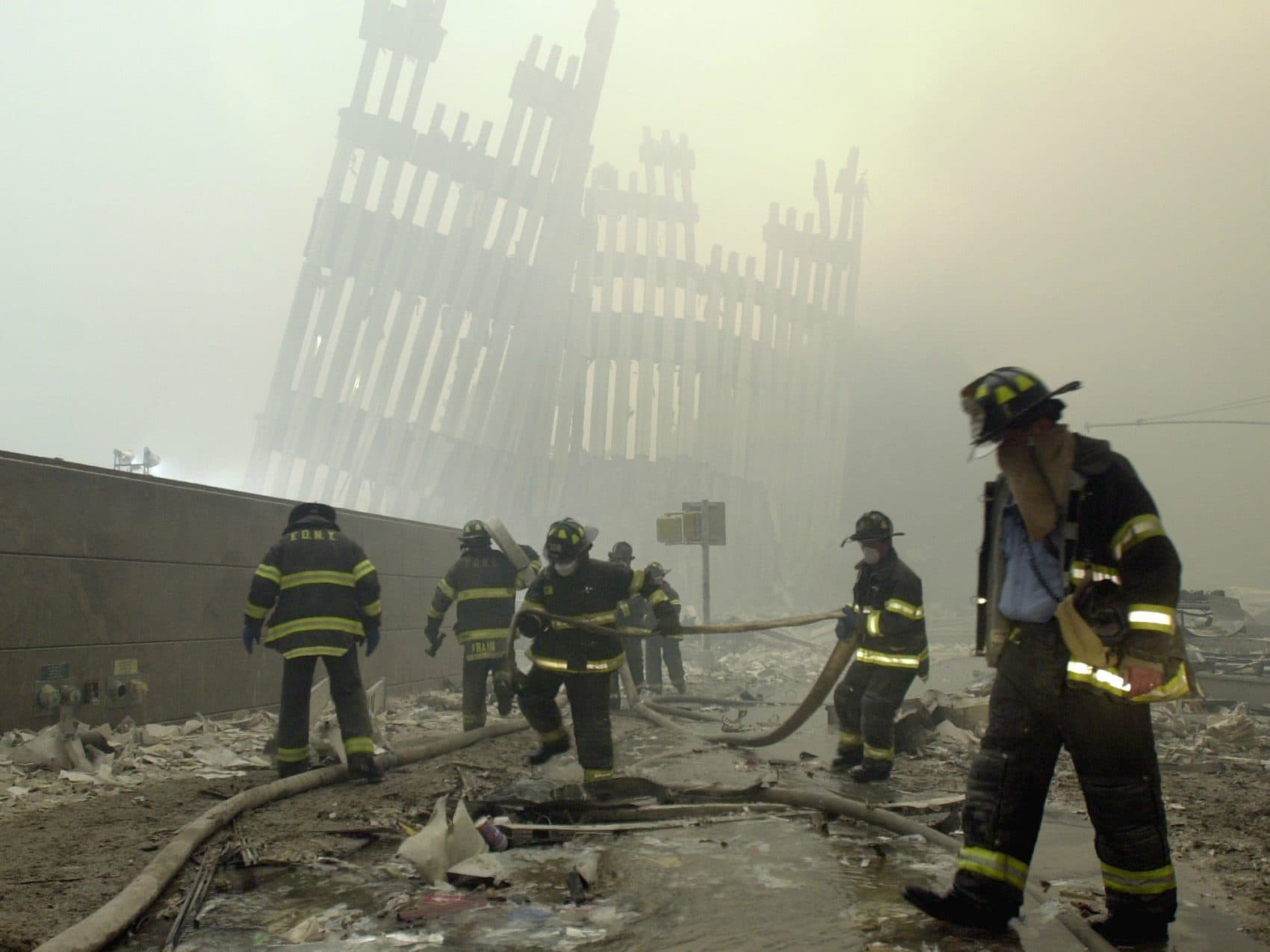Advertisement
15 Years Later And Wondering: Is Getting Used To Terrorism A Good Thing?

On the first anniversary of Sept. 11, 2001, I had been living in Israel for just over a month. We recognized the occasion at the American International School by arguing halfheartedly during international relations class about which was worse: 3,000 people killed at once, or 3,000 killed in years of endless conflict.
“You shouldn’t make such a big deal out of it,” said one of my Israeli classmates, referring to the mass displays of ritualized grief in my home country and the reactionary security protocols put in place by the American administration. “You’ll never get used to it that way.”
He said it with such an assured nonchalance that it made me squirm with something like jealousy. I ran my thumbnail in the grooves of my desk, graffitied with initials, and wondered how one goes about getting used to something like this.
Between what I think of as My First Suicide Attack, as if it belongs in a baby book, and the last one before I left in August of 2003, there were 23 suicide attacks in Israel.
Terrorism, by its very nature, relies on our ability to be surprised, to be unsettled. What I would find about the Israeli sensibility about pigua, or terror attacks, was a stubborn refusal to be either. There was an enforced normalcy to their response: Expect attacks to happen, and when they do, acknowledge them briefly before moving on.
The week after 9/11, there were back-to-back suicide attacks in Israel. The U.S. Embassy had an emergency phone chain to pass details of these attacks quickly between families. After the second attack, I stood in my kitchen and took down the necessary information (September 19, Bus 4 in Tel Aviv near the Great Synagogue, six dead, no Americans) and passed it along to the next person in the phone chain.
I stared down at the notepad, wondering what to do with the sheet of paper. Eventually, I threw it away and went about my day as if nothing had happened. There was nothing else to be done.
A month later, John Allen Muhammad and Lee Boyd Malvo went on a three-week shooting spree in what came to be known as the Beltway Sniper Attacks.
“You have no idea,” my old Northern Virginia friend said one night as we chatted online. “It’s so scary, knowing you could be killed at any moment just by walking out your front door.”
I stared at the smiley face emoticon next to her screen name with my hands poised over the keyboard, trying to think of how to respond. We’d lost more in one day (October 21, Karkur Junction, 14 dead, no Americans) than they’d lost in three weeks.
You shouldn’t make such a big deal out of it, I wanted to type. You’ll never get used to it that way.
Between what I think of as My First Suicide Attack, as if it belongs in a baby book, and the last one before I left in August of 2003, there were 23 suicide attacks in Israel. I don't know when it happened -- maybe it was the double-bombing at the central bus station (January 5, Tel Aviv Central Bus Station, 23 dead, no Americans) maybe it was the first attack that happened at a place that was familiar to me (April 30, Mike's Place Bar, 3 dead, no Americans) -- but at some point, the frequency of the terror outweighed my capacity to be terrified. In short, I got used to it.
But sometimes, I wish I hadn’t.
The day of the Boston Marathon bombings, my friend Sam and I walked out of MGH around 2:45 in the afternoon. We had just had her wrist stitched up — her knife slipped when she was cutting a lime. Unbeknownst to us, the hospital would soon be filled with the mangled bodies of marathon runners and spectators.
I searched myself for emotion. I felt only mild surprise. Not that it had happened, but that it hadn’t happened before this.
I think I heard the muffled boom as we walked across the street, but it’s hard to say. I hear all loud sounds as bombs. I thought nothing of it until we walked into a bar. It was dead quiet, all eyes riveted to TV screens that broadcast images of bloody bodies strewn in front of the doors of the Boston Public Library.
My beloved library, streaked with red. I searched myself for emotion. I felt only mild surprise. Not that it had happened, but that it hadn’t happened before this.
I did not wonder then how one goes about getting used to these things. I already knew. For the first time, I wondered how one might go about doing the opposite -- getting unused to it.
Even now, 15 years after 9/11, I’m still wondering.
